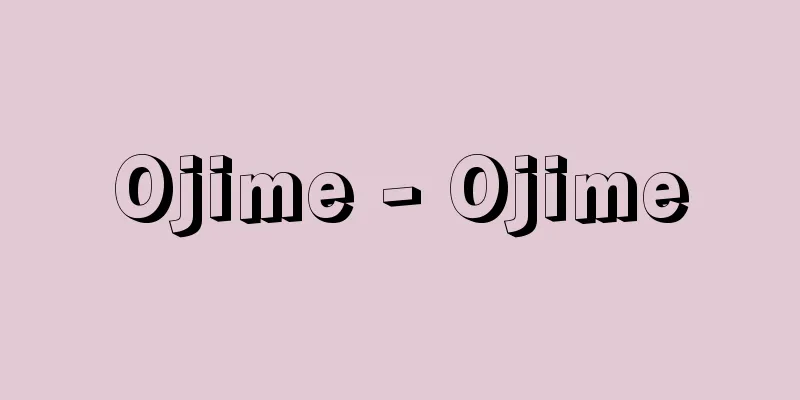Age - Dai

[1] 〘noun〙① The period during which one holds a position such as a family headship or a throne. ※Hirado-ki, December 10, 1227 (Kaoru 3rd year), “The Right Minister said, ‘Kangen and Kanji, Kantoku and Chokan are unpleasant. It is not appropriate to use them strongly. Moreover, the character Gen has been used for many generations.” ※Isanatori (1891), <Koda Rohan>, 38 “What on earth are you in this family? Why has this family been replaced?” ② A substitute. A substitute. Also, an atonement. Compensation. Something for a substitute. ※Kōyasan documents, February 7, 1213 (Kenryaku 3rd year), Kamitsu Dotaishi’s land removal letter “The matter was not resolved , and the land was actually handed over to me.” ③ A person who does work in place of another. A person who handles things as a substitute. A substitute. An agent. Myodai (representative) . A person in charge. A magistrate. *Koyuki - November 16, 1019 (Kannin 3) "Daiutasho betto Chugu no Daifu Fujiwara no Ason (Sainobu) is not attending. Instead, Empress Dowager Miyatsugu Ason (Tsunefusa) can take his place, so I have heard from Tsuneto that he is acting in his place." *Kabuki, Tokyo Nichi Shimbun (1873 ) Taisho "Hanjiro has been seriously ill recently, so he is acting as my personal representative as well." 4. Money or something equivalent equivalent to a specific amount of labor or product. Payment. Deposit. Price. Suggestion. ※Teishin Koki, August 7, 948, Tenryaku 2: "Of the 430+ silks, 200 were given as payment ." ※I Am a Cat (1905-06), Natsume Soseki, vol. 11: "So I said, 'I don't care what it costs, so if you like it, please take it.' ⑤ = Tai (dai) ※Haiku, Konzanshu (1651), vol. 6: "From the fields of the two eras, a melon, a Yamato melon (Teiden) " ⑥ The period that divides the geological ages. Based mainly on the evolution of living things, it is broadly divided into three eras: the Paleozoic, Mesozoic, and Cenozoic. The eras are further divided into eras, periods, and periods. [English-Japanese, Japanese-English Geography Dictionary (1914)] ⑦ Abbreviation of "daihyobango (representative number)." [2] 〘Suffix〙① Used to count the order of succession to the family headship or throne. ※Genji (c. 1001-14) Hana-en “I have seen four generations of the reign of Myo-o.” ② Used to indicate an approximate range of years or age (usually in units of 10 years). 1970s, teens, thirties, etc. ※Song for a Silent Wife (1974)〈Koyama Koreo〉“They are still children, whether Hori or Tanaka. They are all still in their twenties.”White [Generation]Substitute [substitute]Dai [generation]Tai [generation]Source: The Selected Edition of the Japanese Language Dictionary About the Selected Edition of the Japanese Language Dictionary Information |
[1] 〘名〙① 家督や王位などを受け継いで、その地位にある年月の間。※平戸記‐嘉祿三年(1227)一二月一〇日「右大弁云、寛元寛字、寛徳・長寛不快。強不レ可レ被レ用。其上元字多代末歟」※いさなとり(1891)〈幸田露伴〉三八「一体汝は此家の何でござるか、何ぞ此家は代(ダイ)が代りでもいたしましたか」② 代わりとなるもの。代用のもの。また、つぐない。代償。代の物。※高野山文書‐建暦三年(1213)二月七日・上津道太子田地去状「其沙汰不レ成レ代、件田地進渡申事実也」③ 代わって仕事をする人。代理として物事に当たる人。代人。代理人。名代(みょうだい)。代の者。代官。※小右記‐寛仁三年(1019)一一月一六日「大歌所別当中宮大夫藤原朝臣〈斉信〉不参。以二皇太后宮権大夫源朝臣〈経房〉一可レ為レ代之由経通令二奏聞一」※歌舞伎・東京日新聞(1873)大切「半次郎儀、昨今病気重態ゆゑ、則ち私代(ダイ)を兼ね、罷り出ましてござりまする」④ 特定の労力や商品などに相当する分の金銭もしくはそれに準ずるもの。代金。あたい。ねだん。しろ。※貞信公記‐天暦二年(948)八月七日「絹四百卅余疋の内、二百疋の代、以レ銭被レ給者」※吾輩は猫である(1905‐06)〈夏目漱石〉一一「そこで僕がなに代は構ひませんから、御気に入ったら持って入らっしゃいと云ふ」⑤ =たい(代)※俳諧・崑山集(1651)六「二こく代(ダイ)の畑(はた)かから瓜大和瓜〈貞徳〉」⑥ 地質時代を大きく区分したその期間。主として生物の進化に基づいて、古生代・中生代・新生代の三つに大別される。代はさらに紀・世・期に細分する。〔英和和英地学字彙(1914)〕⑦ 「だいひょうばんごう(代表番号)」の略。[2] 〘接尾〙① 家督や王位を継いだ順序を数えるのに用いる。※源氏(1001‐14頃)花宴「明王の御代、四代をなん見侍ぬれど」② 年代や年齢のおおよその範囲(主として一〇年単位)を示すのに用いる。一九七〇年代、十代、三十代など。※無口の妻とうたう歌(1974)〈古山高麗雄〉「子供なのよね、堀にしても、田中にしても。みんな、まだ、二十代ですから」
しろ【代】がわり がはり【代】だい【代】たい【代】出典 精選版 日本国語大辞典精選版 日本国語大辞典について 情報 |
Recommend
Hokyoji Temple
Located in Kamigyo Ward, Kyoto City, this temple w...
Luis Carlos Prestes
Brazilian revolutionary. Born in Rio Grande do Su...
Miniature garden - Hakoniwa
In 1620 (6th year of the Genna era), when the Kat...
Hippocampus coronatus (English spelling) Hippocampuscoronatus
…[Isao Hanyu]. … *Some of the terminology that me...
LTD - LTD
Laser target designator : A device that shines a l...
Asphodelos - Asphodelos
...The daffodil seen in this legend is said to be...
Ibusuki leaf
A native variety of tobacco grown near Ibusuki Cit...
Kawabe [town] - Kawabe
A former town in Kawabe district, located in centr...
Kaifu
…In 1866 (Keio 2), the Kofu Kinban rule was aboli...
Basileides (English spelling)
…The cock is a bird representing foresight and ca...
Insurance premium - hokenryo (English spelling)
In an insurance contract, the insurer, one of the...
Tsuruga Shinnai
It is an art form of the Tsuruga school of Shinna...
Mendelian Population - Mendelian Population
A population of organisms of the same species that...
Townspeople - Chounin
Merchants and industrialists who lived in cities ...
《Red Data Book》(English) Red Data Book
...A species or subspecies of an animal that is e...









